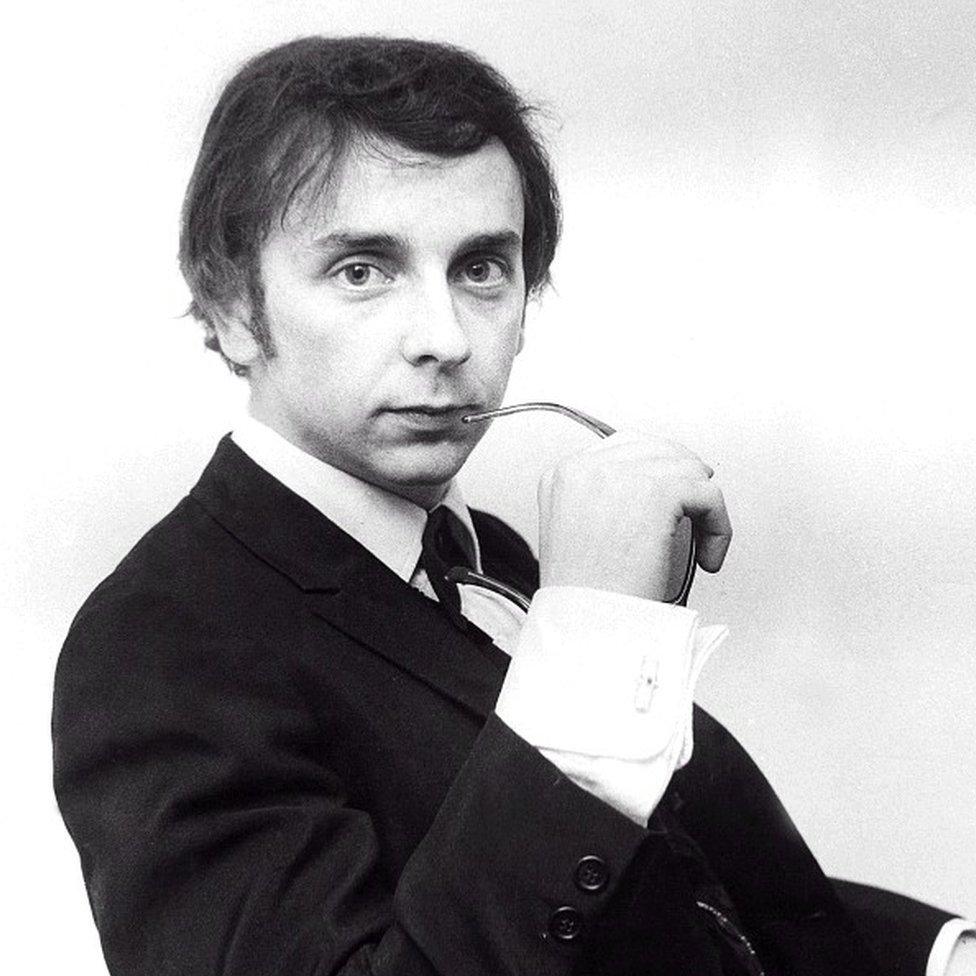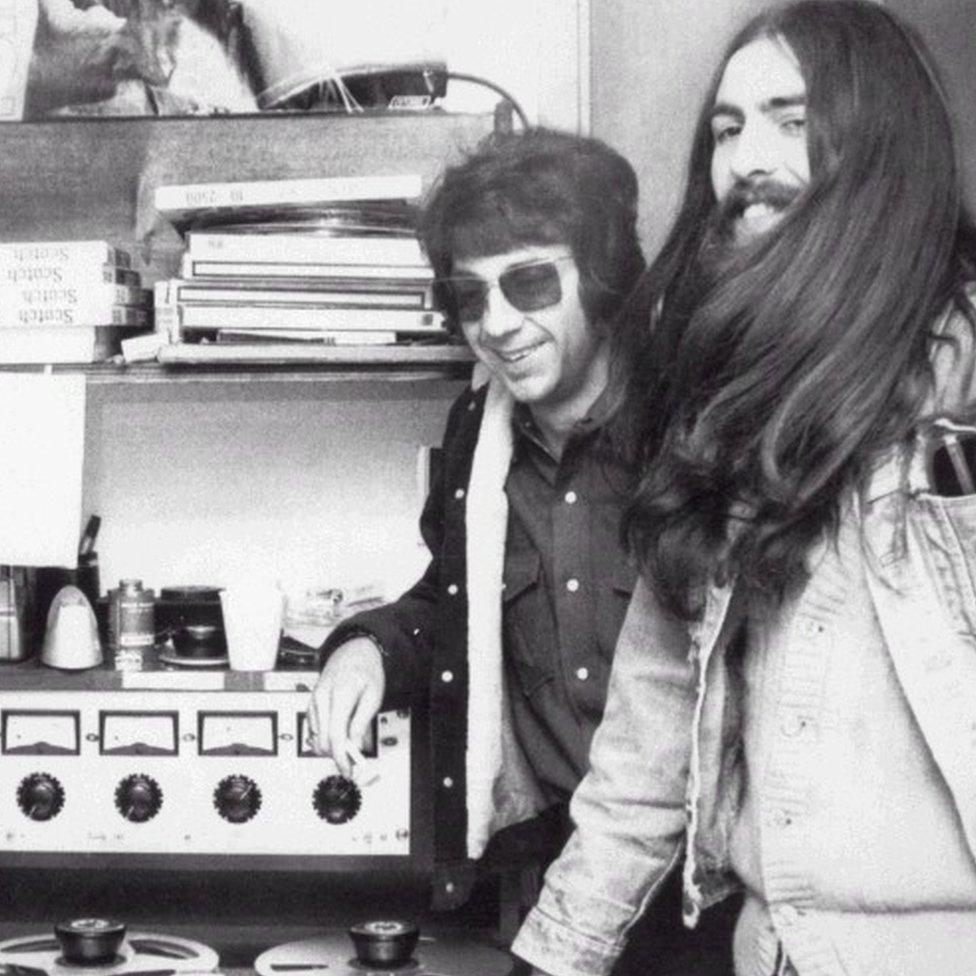Obituary: Phil Spector
- Published


Phil Spector gained fame for his "wall of sound" recording technique which transformed popular music, but he died a convicted murderer, serving 19 years to life in a California prison.
His production methods appeared on a host of chart-topping records and influenced some of music's biggest names like The Beatles, Leonard Cohen and The Ramones.
However his life was blighted by drug and alcohol addiction and he was jailed in 2009 for killing the actress Lana Clarkson.
At the height of his career he was hailed as the first person to see the potential of the recording studio as an instrument in itself. The Beach Boys' Brian Wilson described him as the most influential music producer he knew.
His prowess in the studio was tempered by the lows of his depression, and what he described as the demons inside him.
"I'm probably relatively insane," he told Britain's Daily Telegraph newspaper in 2003, just before he murdered Lana Clarkson. "I'm my own worst enemy."
'Wall of Sound'
Harvey Philip Spector was born on 26 December 1939 into an immigrant Jewish family in New York's Bronx district.
His father, who was of Russian origin, killed himself when his son was nine years old and his mother moved her family to Los Angeles.
Spector learned to play guitar while at high school and, after graduating, formed a band called The Teddy Bears. In 1958 they had a chart-topping hit, To Know Him Is to Love Him, a song Spector had composed, based on an inscription on his father's tombstone.

He produced hits for The Ronettes, later marrying their lead singer
He began working with the famed song-writing duo Leiber and Stoller, and by 1961 was a millionaire after producing a series of chart hits.
His career took off further when he formed his own production company with a record executive, Lester Sill, and signed a girl group known as the Crystals.
With them he produced a range of hits including He's a Rebel, Da Doo Ron Ron and Then He Kissed Me - and also Be My Baby and Baby I Love You with girl group, The Ronettes.
His musical technique was to blend the sound of a large number of instruments, including strings, woodwind and brass, often overdubbing tracks to create the rich so-called "wall of sound", which Spector dubbed "a Wagnerian approach to rock & roll".
For the Righteous Brothers' 1964 hit, You've Lost That Lovin' Feelin', he used four guitars, three pianos, three basses and an assortment of trumpets, trombones and saxophones before adding the vocals.
It was seen as a remarkable achievement given the basic three-track tape recorders which were available at the time.
Yet despite his success, Spector was tiring of his record business.

Spector worked with George Harrison on his All Things Must Pass album

He disappeared from public view in 1967, emerging to marry Ronnie Bennett, the lead singer of The Ronettes. It was his second marriage, after he divorced his first wife, vocalist Annette Merar. He also made a cameo appearance as a drug dealer in the 1969 film, Easy Rider.
Rumours that his behaviour was becoming erratic began to emerge and he was accused of mentally abusing Bennett. He also began to carry a gun.
In 1970 he went to England at the urging of The Beatles' manager, Allen Klein, where he produced John Lennon's hit single, Instant Karma.
He was then asked to tackle the Get Back sessions, a series of tapes recorded by The Beatles over the period 1968-70, including the famous performance on the roof of the Apple building in central London in January 1969.
Retreat from public view
Shortly after forming a new record company with Warner Bros, Spector was almost killed when, on 31 March 1974, he was thrown through the windscreen of his car, sustaining serious head injuries.
In the aftermath of the accident he once more retreated from public view.

Spector became an increasingly reclusive figure

It was three years before he reappeared, producing Leonard Cohen's album, Death of a Ladies Man.
Cohen's fans were angered by the dense orchestral sound, in contrast to the singer's usual stark style, and even Cohen described the album as "grotesque".
His next project managed to upset another group of fans, when he produced the album End of the Century for The Ramones.
The departure from their usual stripped-down punk sound received mixed reviews, but it became the band's best selling album.
Spector virtually retired from the music scene throughout the 1980s and 1990s. He surfaced briefly, causing controversy, when at an awards ceremony he accused The Spice Girls of being "the Antichrist".
Convicted of murder
In February 2003, Lana Clarkson was found dead at his house in Alhambra, California, with a bullet wound to her head.
Spector claimed the shooting happened when Clarkson "kissed the gun". He remained free on bail until his trial which started in March 2007.
The court heard from four women who claimed Spector had threatened them with guns in the past when they had spurned his advances.

His murder trial attracted huge media attention
After the the jury failed to reach a unanimous verdict the judge declared a mistrial and a new hearing began in October the following year.
Six months later Spector was convicted of second-degree murder and given a sentence of 19 years to life.
Numerous applications for appeals were all refused over the subsequent six years. Spector's health deteriorated in prison and he was moved to an inpatient care unit in 2013.